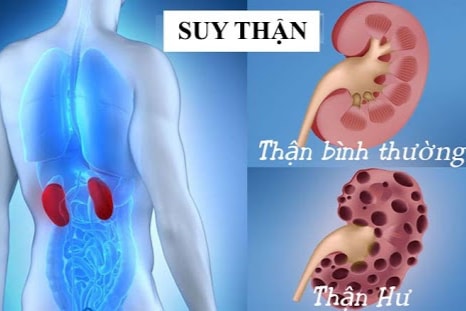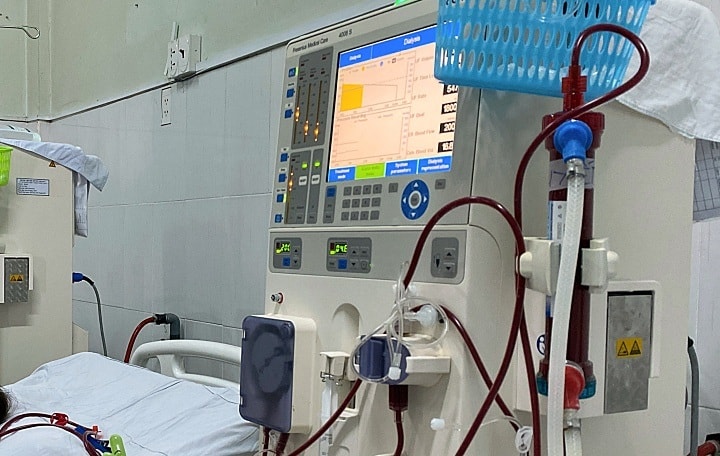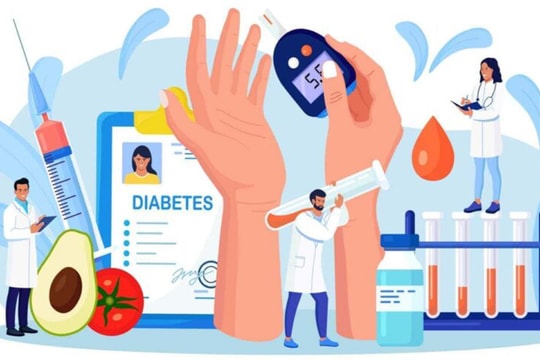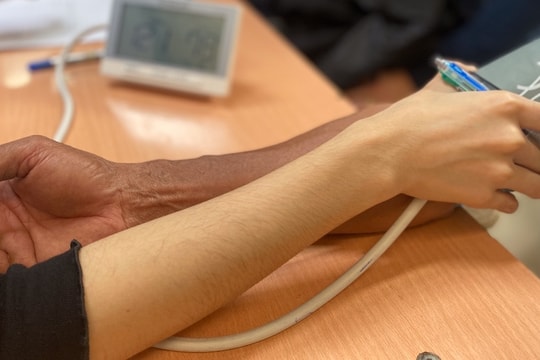Kidney failure silently, 7 things to do immediately to protect
Kidney disease occurs when the kidneys are damaged and cannot filter blood normally. The disease often progresses silently and only becomes apparent in the late stages.
The kidneys play an important role in filtering blood, regulating blood pressure and balancing electrolytes in the body. The main causes of kidney disease include diabetes, high blood pressure, unhealthy eating habits and overuse of painkillers...
According to doctors at Bai Chay Hospital (Quang Ninh), kidney disease is divided into two main types: chronic kidney disease and acute kidney injury.
Chronic kidney disease is a condition in which kidney function gradually decreases over time. Factors such as high blood pressure, diabetes, and a family history of kidney disease can increase the risk of developing the disease.
Acute kidney injury occurs suddenly and is usually caused by injury, infection, or other conditions that affect kidney function for a short time.

In the early stages, kidney disease often progresses silently. Photo: HT
Signs of kidney disease
Signs of kidney disease include fatigue, weakness, difficulty sleeping, dry, itchy skin, frequent need to urinate, blood in the urine, foamy urine, swelling of the ankles and feet, loss of appetite, loss of appetite, and frequent muscle cramps.
In the early stages (stages 1-3), the disease often has no symptoms, many people only discover it by chance through blood and urine tests.
In stage 4 and above, the patient has symptoms such as anorexia, nausea, vomiting, stomatitis, taste disturbances, nocturia, lethargy, fatigue, itching, mental decline, muscle spasms and cramps, fluid retention, malnutrition, peripheral neuropathy and seizures.
Kidney disease, if not treated promptly, will lead to dangerous complications such as anemia, heart disease (coronary artery disease, heart failure, arrhythmia and sudden cardiac death), hyperkalemia, water retention in the body, bone disease and hyperphosphatemia in the blood, making bones brittle, causing calcium deposits in the eyes, lungs and blood vessels.
The disease also increases the risk of heart attack, stroke and death over time, mental health (dementia).
When kidney function is severely impaired, patients face the risk of chronic kidney failure, requiring replacement treatment with dialysis or kidney transplantation.

When kidney function declines, patients will be forced to undergo dialysis or kidney transplant. Illustration: NP
What to do to prevent kidney disease?
To prevent kidney diseases, people need to note the following:
-Exercise regularly
This helps maintain a healthy weight, lower blood pressure, and prevent chronic kidney disease.
According toHealthlineTo protect your kidneys, you need to maintain an active and healthy lifestyle.
Regular exercise isn't just good for your waistline; it can reduce your risk of chronic kidney disease. It can also lower blood pressure and improve heart health, both of which are important for preventing kidney damage.
You don't have to run a marathon to reap the benefits of exercise. Walking, running, cycling, and even dancing are all great for your health.
-Maintain a healthy diet
You need to limit salt and processed foods, while increasing green vegetables and fruits. Protein from plants instead of animal protein can put less stress on weak kidneys.
-Good control of underlying diseases
People with underlying medical conditions such as diabetes, high blood pressure, etc. need to control their condition well. This will help slow down the decline in kidney function. In particular, keep blood pressure below 130/80.
-No smoking
Smoking reduces blood flow to the kidneys and increases the risk of kidney failure.
-Limit the use of over-the-counter anti-inflammatory and pain relievers
Misuse of this medication can cause serious kidney damage. Nonsteroidal anti-inflammatory drugs, such as ibuprofen and naproxen, interfere with kidney function. Taking them while your body is depleted of fluids can cause kidney failure and you may need to be hospitalized.
For pain relief, acetaminophen (no more than 3,000 milligrams per day) is safer. If you must take an NSAID, be sure to drink plenty of water.
-Drink enough water
Drinking water regularly and consistently is good for your kidneys. Water helps flush sodium and toxins from your kidneys. It also reduces your risk of chronic kidney disease.
You should drink at least 1.5 to 2 liters a day. However, the exact amount of water you need depends largely on your health and lifestyle. Factors such as climate, exercise, gender, overall health, and whether you are pregnant or breastfeeding are important to consider when planning your daily water intake.
People who have had kidney stones in the past should drink a little more water to help prevent future stone formation.
-Regular kidney health check-ups
Regular health check-ups to detect kidney problems early, especially for high-risk people such as diabetics, hypertensive patients, and obese patients.


-a56ed3e15e70f7927de587a27383c7f0.jpg)

